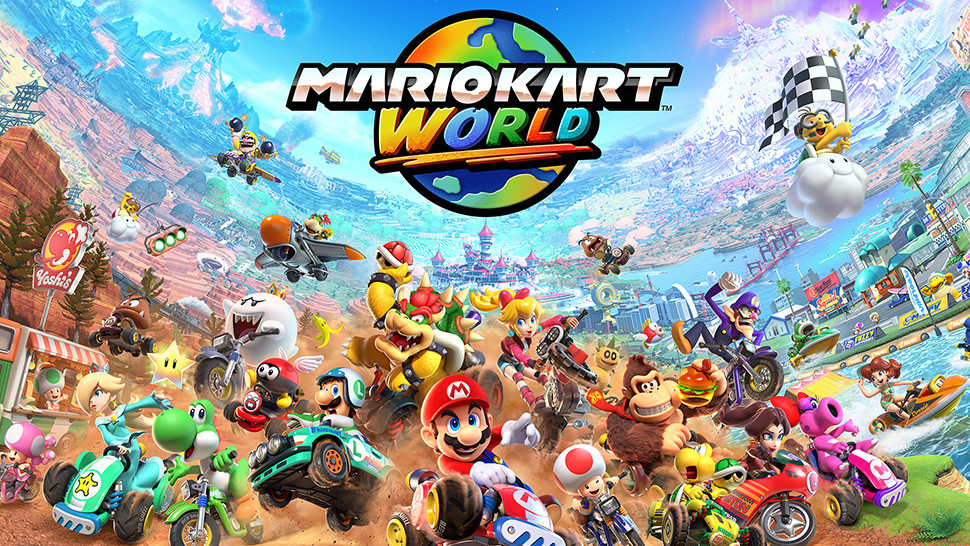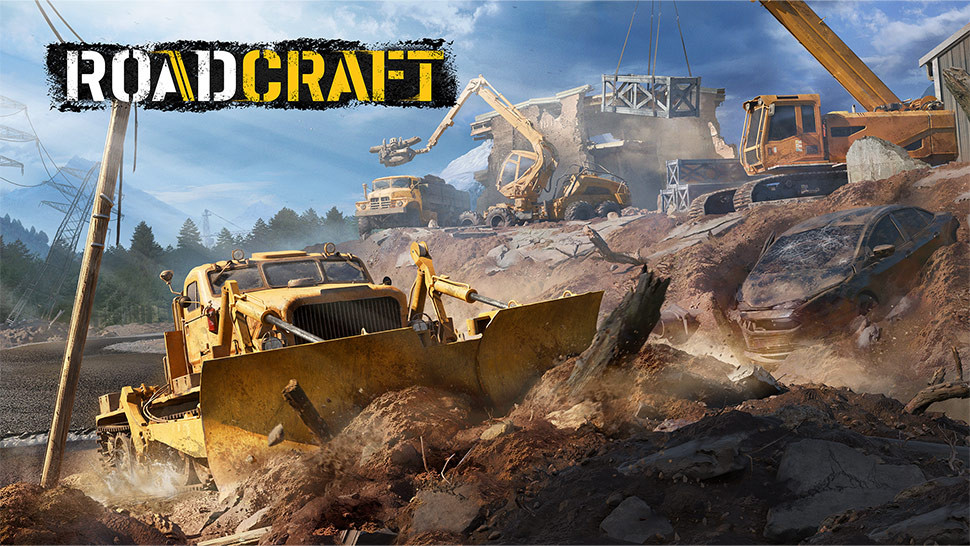The Witcher 3: Wild Hunt Review

 By Kevin Mitchell | Jun 2, 2015
By Kevin Mitchell | Jun 2, 2015
The popularity of open-world adventure games is at an all-time high, and Polish developer CD Projekt RED struck gold by revising the formula with The Witcher 3: Wild Hunt. Since the original Witcher released in 2007, players have been following the heroic exploits of Geralt of Rivia. Not only is the game world much larger than any previous Witcher title, but the world is filled to the brim with content. Thanks to the REDengine 3 game engine designed by CDR for use with their open-world titles, The Witcher 3: Wild Hunt has set the bar for future games of the genre.
Although this is the third game in The Witcher franchise and the game series itself is based on the fantasy series written by Andrzej Sapkowski, it isn't necessary to have any prior exposure before venturing through the lands in Wild Hunt. Fans of the series will find more enjoyment from the main narrative than someone that hasn't played the previous games thanks to the returning characters, such as the redheaded sorceress Triss and the gaudily dressed Dandelion. No longer an amnesia tale like The Witcher 2: Assassins of Kings, Geralt must find and keep Ciri (who is like a daughter to him) safe before the Wild Hunt uses her mystical power for nefarious purposes. Emotions run high and the story unfolds across multiple regions that will take you from the flowing fields of Velen to the snow-covered archipelago of Skellige.
The rich world Geralt finds himself in is full of hidden dangers (and treasures), and you'll frequently find yourself venturing off the beaten path. While the main narrative will move the game along and send you to new locales, the hundreds of side quests take center stage. There is nothing like following a winding dirt road through fleshed-out forests at night with the sound of howling wolves on either side of you, only to discover a bandit camp or even an ancient creature tricking the local townsfolk into thinking he was a deity to worship.
Even the main quests can lead you to additional (and optional) side quests, with each one branching off into even more quest lines. During these quests, you'll interact with most, if not all, of the main cast of characters. My favorite quests come from the notice boards located in each town, allowing you to take monster contracts. These contracts feature the most dangerous creatures the world has to offer, requiring the use of Geralt's unique hunting abilities. Whether you are taking down a haunting night wraith or a rampaging griffin, you'll take a trophy from successful hunts, proudly displaying said trophy on the side of your faithful steed.
The immersive nature of the world is one of the reasons The Witcher 3 succeeds more than any other game in the genre. While traveling to a quest by horseback or boat, you'll come across additional townsfolk in peril, a hidden entrance to a cave, monster nests, or even bandits sitting by a fire. Don't be afraid of swimming to the depths of the ample lakes, ponds, and rivers, as underwater adventures can yield valuable treasures and crafting components. I appreciated the smaller details that may get overlooked if someone attempts to rush through the game by only completing the main narrative. Towns spring to life with dogs and ducks roaming small villages, cats wandering the busy urban streets of Novigrad, and herds of deer grazing in the breathtaking countryside. Taverns have ongoing bare-knuckle boxing matches that you can enter, and almost every merchant, crafter, and main character in the game is willing to play gwent.
Replacing the dice poker mini-game from The Witcher 2, gwent is much more than a mini-game, rivaling the complexity of Blizzard's Hearthstone. I didn't put much time into playing gwent, as there are way too many cards to collect by either purchasing them from vendors or collecting them by beating your opponents. It is possible to miss specific cards due to your choices in the main story, so make sure to save often if you are attempting to collect them all.
There are 36 different end-game states in The Witcher 3: Wild Hunt, with everything tied to the decisions and choices you make throughout the game. Even the resolution to the main narrative has different outcomes, heavily influenced by your actions during the game's final moments. Content and satisfied with how the events unfolded, I watched the credits slowly roll across the screen, not believing the journey had come to an end. Once you regain control of Geralt, you are freely able to explore any location as you see fit to finish any side quests, treasure hunts, or witcher contracts you didn't complete. The only caveat: anything tied to the main narrative won't be available, although this is highly insinuated before the game's final act, as the game notes the point of no return.
Conversations in the game, no matter how insignificant, play a major role in shaping the world and how the general public perceives Geralt. Although he is already an outcast by trade (being a witcher), his choices allow you to further develop his personality. Nothing is ever black and white, and the way conversations unfold showcase the various shades of grey tied to each decision. Some of the more critical choices in the game force you to think quickly due to the inclusion of a timer mechanic.
Although witchers are known to only work for money, I began my journey by taking pity on those in need by refusing to take rewards but soon learned how corrupt the world was. For example, I met a traveling merchant on the side of the road spinning a tale about being attacked, losing his cargo in the nearby marshlands. After investigating by using Geralt's witcher senses to locate the missing horse and cart, I determined he was actually a thief attempting to steal the goods. Another time, I brought someone to justice after he burned down the local blacksmith's house due to him being a dwarf, only to have the local military take him away for a public execution.
Combat has been dramatically improved, adding in the option to use a crossbow at any time to help alleviate issues with airborne enemies. Reloading the crossbow is slow, and I've died multiple times while trying to reload and fire again. Instead, I heavily relied on the use of Signs, especially Igni, to produce a steady stream of fire to force anything in the air to crash hard into the ground. All five Signs are available from the beginning, but as you add points to the respective skill trees, you'll unlock alternate attacks, such as using the Aard Sign to create an invisible force in a 360-degree pattern instead of just in front of you.
Blocking and parrying have become a staple to the series, and the combat feels closer to the Souls series than a button masher. Even a roaming pack of wolves that aren't part of any quest line can easily take you down if you aren't careful. I've never felt that my choices in character progression were limiting my ability to play through the game, even though I didn't put a single skill point in alchemy. Combat is action-packed, and even the simplest fight leaves you walking away satisfied. The Bestiary collects data on all the creatures you encounter, letting you know what potions or spells to use to exploit weaknesses. Holding block is the quickest way to get yourself stunned, so learning enemy attack patterns opens them up to counterattacks.
Through the 120 hours I already put into the PlayStation 4 version of The Witcher 3, I only have a handful of complaints, with the majority of them not affecting gameplay. Load times are longer than I would like, especially when fast traveling to different regions or loading a save file upon death. Like many open-world games, there are more technical issues than I would like to count, but none were detrimental to my enjoyment. Occasionally, corpses and pieces of equipment will float in the air or clip through the environment. Trees and shrubbery, which are constantly blowing in the wind, will clip through houses, breaking the immersion during cinematic cutscenes and during gameplay.
Simply Put
Since the initial reveal trailer back in 2013, CD Projekt RED promised to deliver a truly next-generation open-world experience with The Witcher 3, and CDR has succeeded in creating one of the best games I've played in recent memory. The writing is top-notch and isn't limited to the main story quests, as I found that the side stories in the game to be some of my favorite moments, feeling like short stories that stand on their own merit. Even after 120 hours, I still have hundreds of points of interest to discover, and plenty of quests to complete. Even at the tail end of the game, I was discovering brand new towns waiting for a savior.
Note: The Witcher 3: Wild Hunt was reviewed on PlayStation 4. A digital copy of the game was provided by the publisher/developer.




